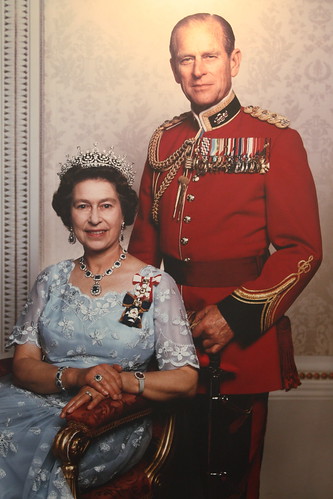Monday, November 30, 2009
The British are Crazy
Evenin' all is not allowed lest it confuse foreigners. Youth, boy, girl, businessman, are words non grata. Also bad words, ""child or youngster" indicate "unreliability or dishonesty""
Birthday cake is banned for being unhealthy.
UK flag is not allowed on ID cards.
Cake sales are shut down in case anyone slips near the tables or dies from eating nut-infested cake that was labeled "May contain nuts".
Oh yes, and Christmas is winterval.
Saturday, November 28, 2009
New Moon
"The idea of vampire romance literature has always appealed to me about as much as a prolonged visit to the dentist; avoid if at all possible. Unfortunately it was not possible, so I settled down to watch New Moon in a mood that just about matched the warm and slightly flat Ginger Ale I took in with me for sustenance. Things did not improve. I usually come out of the dentist feeling better than I walked out of that movie theatre. At the very least I don't feel as nauseated....."
Read the rest of the article here. http://www.mercatornet.com/articles/view/new_moon/
Thursday, November 26, 2009
Myth Busting
It’s my life, my death, my freedom, my choice, my right!
I don’t want to die hooked up to a bunch of machines or forced to stay alive when I know it’s time to pass on.
There are already reports of euthanasia being carried out all over the country. Wouldn’t it be safer to have it regulated by the government?
Having the right to die, even if I never exercise it, gives me the control I need to have a peaceful death.
By the Catholic Organization for Life and the Family (www.colf.ca)
Wednesday, November 25, 2009
Roundup: Catching Horses and Shrivelling Weeds


“This is the most important international negotiation that Stephen Harper will ever be involved in,” said John Bennett, the executive director of the Sierra Club of Canada, an environmental group. “To stay away is bordering on criminal.”"










Tuesday, November 24, 2009
10 Commandments of Coalition Building
Monday, November 23, 2009
Where Have All the Heroes Gone? They've Gone to the Psychiatrists.
They were mostly suits. Civil servants who were there because they had nothing better to do, and the matter involved their department. A group of badly prepped politicians sat around the table, asking nice, polite little questions. A few witnesses answered the softballs, read out prewritten talking points regardless of context, in the better moments made a few nice points, and engaged in personal slurs against people who had the audacity to make personal slurs against them. Day number whatever in another cumbersomely named Parliamentary Committee.
They were debating one of the most important issues in modern Canada. There were no youth chanting slogans, only a bare handful taking notes. The rest were too busy yelling at politicians over yet another environmental bill. A few hundred yards away freedom of speech was balancing on the line. They didn't know, they probably wouldn't have cared if they did.
They try to assert their individuality. They scream their defiance at the government.
Let's talk about utopia.
Grim, concrete, an atmosphere of fear and intimidation so thick that it begins to slowly choke the life out of you.
Sterile, white, conformity, no pleasure, no pain, a syringe, the lawns never have weeds.
Colourful, drugs, sex, drunken conformity of sodden pleasure, monotonous fluctuation.
Utopias are like pizzas, everyone has their own variety. But one theme that runs through many of them is that this is a No-Hero Zone. You don't need many heroes where everything slips by like pistachios on a conveyor belt. No drama, no moments of crisis. The bad ones disappear, taken by mysterious giant hands from above. The good ones run their course and land with a self congratulatory little rattle in the appropriate bag.
Destiny.
Heroes track mud in on the clean floor. More often than not they attack the postman, mistaking him for a burglar.
Criminals are so much simpler to deal with.
"...the image of a hero has shifted in our modern age to a man who is flawed, dark, and mysterious. We are reluctant to accept a heroic calling. These days purity and virtue are , to say the least, questionable. Cincinnatus, Galahad, and Roland have been replaced by anti-heroes such as Dirty Harry, Jason Bourne, and Rambo." Frank Miniter
So now we get heroics perpetrated by aberrations. Tortured, tormented, criminal, and very high-tech.
"...to believe in the heroic makes heroes." Benjamin Disraeli
What happens when we no longer want heroes? Can we eradicate heroism?
They have stars in their eyes and passion in their hearts. It seems the eternal prerogative of youth to be heroic. Or perhaps I should have said, it is their prerogative to feel a nameless need for something more.
We cannot quite eradicate "causes", so we will find them causes to our liking. Busy work.
Soon they grow tired of playing with toys. They get a job, buy a Starbucks.
If there are no standards, can we ever really rebel, ever really defend?
"In short, the modern revolutionist, being an infinite sceptic, is always engaged in undermining his own mines... By rebelling against everything he has lost his right to rebel against anything." Chesterton
We are immersed in relativism and cynicism. There is no good and evil, no right and wrong, no up or down, no standard beyond expediency and we're not even sure about that. In this claustrophobia of equality can we be expected to look up to a hero? Can we believe in anything above or beyond ourselves? Did we kill the fairy tale when we made androgyny our god?
Can you die for something that is not a good? I dare say that most people when they dream of heroics, dream of the moment when the dragon's blood spills around their fingers, burning, staining. The Princess looks on from a safe distance and a red Ferrari. They want to fight for something worth fighting about. They don't want to be the sort of person that would make others consider legalizing high-level anti-depressants just so they don't have to listen to his grating moans.
Anti-heroes, heroes who do not know why they do what they do, heroes who are almost as repulsive as the evil they are fighting, heroes with all the attractive glamour of an oozing infection, have a hard time inspiring heroism. Real Heroism.
Is that why we are being given anti-heroes? Why we are given evil and told to admire it? Why suicide bombers are being elevated, and those who euthanize others portrayed as martyrs?
"Today, there is a tremendous cynicism about the capacity of the individual to impact the broader world, and the truth is that you probably can't make that big of a difference. But storytelling has always been the terrain where someone could. We need someone who can level a mountain so that we can step over an anthill... What I have noticed in the Millennials- the people who are coming of age in this new millennium-is a sadness about the possibility of heroism." Barbara Nicolosi
Swirl from the golden apple and the heroism of the good through the vortex into a grey room. Walk a few steps. Vapours start to form about your head. Turn around. There is a joke to be told. Tell it. Laugh because you aren't supposed to.
Embrace heroism, live it. Track mud in on the floor. Better yet, mop it up.
Tuesday, November 17, 2009
Renouncing Islamism
As children and teenagers, the ex-jihadis felt Britain was a valueless vacuum, where they were floating free of any identity.
Ed Husain, a former leader of HT, says: "On a basic level, we didn't know who we were. People need a sense of feeling part of a group – but who was our group?" They were lost in liberalism, beached between two unreachable identities – their parents', and their country's. They knew nothing of Pakistan or Saudi Arabia or the other places they were constantly told to "go home" to by racists.
Yet they felt equally shut out of British or democratic identity. From the right, there was the brutal nativist cry of "Go back where you came from!" But from the left, there was its mirror-image: a gooey multicultural sense that immigrants didn't want liberal democratic values and should be exempted from them. Again and again, they described how at school they were treated as "the funny foreign child", and told to "explain their customs" to the class. It patronised them into alienation.
"Nobody ever said – you're equal to us, you're one of us, and we'll hold you to the same standards," says Husain. "Nobody had the courage to stand up for liberal democracy without qualms. When people like us at [Newham] College were holding events against women and against gay people, where were our college principals and teachers, challenging us?"
Without an identity, they created their own. It was fierce and pure and violent, and it admitted no doubt.....
He says the Saudi message is particularly comforting to disorientated young Muslims in the West. "It tells you – you're in this state of sin. But the sin doesn't belong to you, it's not your fault – it's Western society's fault. It isn't your fault that you're sinning, because the girl had the miniskirt on. It wasn't you. It's not your fault that you're drug dealing. The music, your peers, the people around you – it's their fault."
Just as their journeys into the jihad were strikingly similar, so were their journeys out. All of them said doubt began to seep in because they couldn't shake certain basic realities from their minds. The first and plainest was that ordinary Westerners were not the evil, Muslim-hating cardboard kaffir presented by the Wahabis. Usman, for one, finally stopped wanting to be a suicide bomber because of the kindness of an old white man."
Monday, November 16, 2009
How to Run a Coalition...
37. Don't let your opponents pick the battleground.
38. Have your facts. Know them. Deploy them. Put them into fortune cookies if you have to.
39. The only place where it is all mountain tops is the Himalayas, and even they go up and down. You will have setbacks. Promise.
40. Use every available means to get your message airtime (within reason....) and invent new ways if you can.
Sunday, November 15, 2009
The Reason that Miss Marprelate was AWOL..
The euthanasia topic is coming to the front in Canada because of Bill C-384 which is seeking to legalize it.
One of the most important points this conference stressed was how uninformed and misinformed people are about this life-and-death issue. It is extremely important that everyone get clear and accurate information about it so they understand what euthanasia is (and is not), that almost no one needs to suffer unbearable pain, how euthanasia opens vulnerable people to abuse and coercion, etc.
70% of people in Canada support euthanasia, almost certainly many support it because they don't understand what the word means and they are beset by fears. Fear of being alone, fear of pain, fear of dying, fear of abuse, fear of losing control, fears of every type. Most, if not all, of these issues can be solved without killing the patient and that is what we need to focus on.
Event Blog Sections:
Introductions and Welcome
Overview
Amazing Grace
Sub-Committees
Principles of Effective Participation in Advocacy Campaigns
Assisted Suicide and Euthanasia Debate Canada
Assisted Suicide and Euthanasia Debate Quebec
Advocacy Campaign Strategy
Advocacy Campaign Planning Meeting
Event Blogging the Wilberforce Weekend: Introductions and Welcome
Event Blogging the Wilberforce Weekend: Overview of the Wilberforce Weekend Ottawa
You should also notice the personal struggle that Wilberforce underwent, changing his beliefs. If you are trying to change someone it helps if you have changed your mind too.
In Amazing Grace it is shown in one Parliamentary House for dramatic effect but it really happened in two Houses, Commons and Lords. There were also committees, small groups that were even more important than the Houses.
Wilberforce also did not make personal enemies. Some of the MPs who voted for his bill in the end were violently opposed to it before. Wilberforce broadened his circle by embracing people who would disagree on everything except ending the slave trade.
Event Blogging the Wilberforce Weekend: Amazing Grace
Event Blogging the Wilberforce Weekend: Information on Sub-Committees
Event Blogging the Wilberforce Weekend: Principles of Effective Participation in Advocacy Campaigns
'
Event Blogging the Wilberforce Weekend: Assisted Suicide and Euthanasia Debate in Canada
Alex Schadenberg of the Euthanasia Prevention Coalition
This is about building a coalition which he has been doing successfully for 10 years.
We need to be focused on the issues. Some people are concerned about many different social issues but we cannot mix them up. There is no other way to form an effective coalition.
We need to identify with the people whom this directly affects.
We need to focus on the issue in our sessions later on.
We are bringing parallels from the Wilberforce campaign. Although euthanasia is illegal, we are fighting social opinion.
We need to define what euthanasia. "Aid in dying" is not a good term for euthanasia, everyone wants aid when they are dying.
Directly and intentionally ending the life of another person by active or passive means for supposed reasons of "mercy' is the definition of euthanasia. The only thing that separates euthanasia and murder is the motive of "mercy".
Assisted suicide is direct and intentional involvement in ending the life of another person. You encourage suicide, or give a lethal prescription, but the patient actually kills themselves.
Withholding or withdrawing aggressive medical treatment is not euthanasia or assisted suicide.
Neither are unintentional overdoses or unintentional deaths.
This is about the direct and intentional cause of death.
I get calls all the time from people who think that their friend or mother is being euthanized by a hospital. Unless it is direct and intentional it is not euthanasia or assisted suicide.
Terri Shaivo was not dying. She had no medical condition causing her death. She was just cognitively disabled and was dehydrated to death. Terri died because she was denied basic care. Morally this was euthanasia.
We are not opposed to natural death, just to killing.
We are not opposed to ending medical treatment that lacks benefit, is overly aggressive, burdensome, etc. This is not about just pulling out a plug. There is much misinformation even among educated people on this point.
We are opposed to imposing limits on medical care that is beneficial. This particularly affects people who are disabled and so forth.
Jocelyn Downie says there is no difference between killing and letting someone die. That is a lie. If you die a natural death that is not euthanasia.
We must remain clear and focused or we will lose the debate. Same-sex marriage or abortion does not belong in a euthanasia debate. Take lessons from these campaigns but keep those issues out.
We need to deal with the issue of choice. Choice is a lie. It is a mantra. This is about the rules that a physician must follow to directly and intentionally cause death.
If it is about choice, we will lose the battle.
Bill C-384 was introduced by Francine Lalonde. The debate will be on Dec 1 and the vote will be Dec 2, 2009.
Safeguards in this bill
Patient must be 18. This is unconstitutional and would be struck down by courts. If this is a social good it cannot be limited by age.
Patient must have tried or expressly refused treatment. This means nothing because you will always have either tried or refused treatment.
You must be in severe physical or mental pain without any prospect of relief. It is not only people with terminal conditions. It can include chronic depression.
You must appear to be lucid, you might not be lucid but you just have to appear to be so. This wording is so broad you could drive a hearse through it.
This is not about choice.
In the morning I appear to be lucid, that doesn't mean I'm lucid. I have six children.
A medical practitioner must be provided with two written requests by someone appearing to be lucid. They must be more than 10 days apart and expressly state the person's free and informed consent to opt to die.
Euthanasia support groups facilitate euthanasia and will line up two physicians for you where needed.
People can have terrible moments of shock where they find out they are dying. If assisted suicide is legal they could be killed during their worst moment.
This Bill does not define terminal illness.
It does not require a witness at the time of death.
It does not restrict death tourism. In Switzerland it costs about $12,000 to die. Someone could make a lot of money. This is not about equality and choice.
The bill does not create a right to die with dignity.
Alex met with Steven Fletcher and asked if he would feel right if his doctor had the right to kill him. Fletcher said "absolutely not"
It would allow people who are chronically depressed to get assisted suicide.
It is a danger to people with disabilities.
We need to contact MPs about this especially to Ignatieff who has not announced his stand.
Tracy Latimer was perceived as better off dead. They didn't talk about what she could do. She went to school everyday by bus. The assistant said at the trial that Tracy was a happy child who was not suffering.
She loved music and she had a radio that she could turn on and off when she wanted to. She liked windshield wipers and outdoor fires. She was dehumanized. This dehumanized people with disabilities
The Gronigen Protocol is about euthanasia of children under 12. There was a court case where a child with severe spina bifida was euthanized. They didn't give the baby pain medication or surgery. 22 newborns with spina bifida were euthanasia over a certain period of time. There were five criteria for the euthanasia of infants. There must be a certain diagnosis and prognosis. Must be hopeless and unbearable suffering (which might include disability.) An independent doctor must agree. Parents must give informed consent, but parents are too shocked and emotionally involved to give informed consent at that time. The procedure must be carried out in accordance with the accepted standard. There must be an after the fact report.
Three groups of infants can be euthanized.
Group 1 are going to die. Why cannot we just let them die naturally.
Group 2 Need significant treatment, grim prognosis. Should they be treated or killed?
Group 3 are not dying but have suffering that is sustained, severe, and cannot be relieved. They said that it is the babies who would otherwise live but whose lives would be wretched to the extreme who need euthanasia the most. What does wretched to the extreme mean?
This is about eugenics and cost-containment. It is also about possible future suffering.
Malphurs and Cohen study. This concerns cases where one "loving" spouse kills a spouse and then commits suicide. In almost all of these cases the murder victim resisted death.
Some said that euthanasia has nothing to do with depression. To their surprise depression was associated with more euthanasia requests. In 2007 49 people in Oregon were euthanized. No one received psychological assessment.
Royal Society of Canadian put together a report on end of life decisions. 4 out of 6 panel members were radical supporters of euthanasia.
Nadia was a 18 year old student at Carlton University. She went online trying to seek help for her depression but she found someone who pretended to be a young female nurse. They created a "suicide pact" and Nadia killed herself. The predator tried to get Nadia to kill herself on webcam so he could watch.
We require a wider, stronger, effective, and unified organization. Alex is committed to winning this battle. We must accept our diversity. This must be a single issue coalition.
We are looking for people who are willing to build or work with a central organization that opposes euthanasia
We are confident that we will defeat this current euthanasia bill unless there is something unexpected.
We need more leaders
We need more speakers
We need more donors
We meed more workers
We need you
On Facebook most of our fans are young people. We ask how we can motivate young people. Young people can be motivated if you meet them where they are.
Question 1 Jocelyn Downing position is not lying, she is mistaken. Tracy Latimer was suffering from a dislocated hip, it was bad medicine that it wasn't corrected. Women do kill their spouses too by the way. They are equal opportunity homicidals. I'm a bachelor.
Answer 1 I shouldn't have said she is lying. I read her book and went to two of her lectures. She is very much in favour of euthanasia. She actually gave a government funded talk.
Q2 Two issues that are potential pitfalls ahead. With regard to "All or nothing", Francine Lalonde bill will lose because it is all or nothing. But we may face a much more reasonable bill later on, what then?
A2 There are some who say the current bill is too wide, others that there is not good enough palliative care, some just support euthanasia period.
Q2 But we need all or nothing because we can't have death.
Q2 You are speaking from the point of view of a doctor. As such your strongest and most personal point of view is this, that doctors are there to save life, to say they should kill changes them. Physicians need to start saying that.
Q2 We will need to oppose a moderate bill, it must be all or nothing.
Q2 Yes, that is a problem
Q3 What about extraordinary measures being removed without patients consent, that is euthanasia.
A3 That can happen. It is a huge concern in disability issues. This might be a huge ethical problem when some people die, but it is not actually euthanasia if someone dies a natural death.



